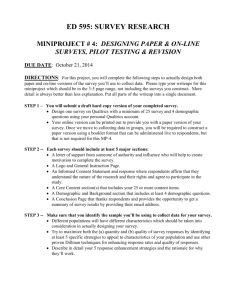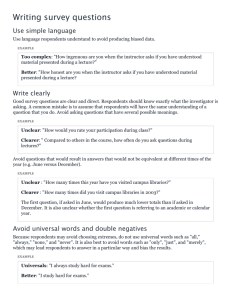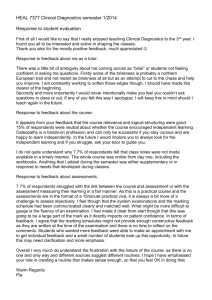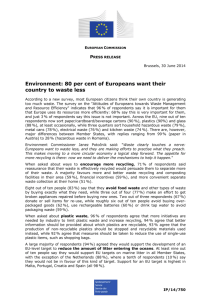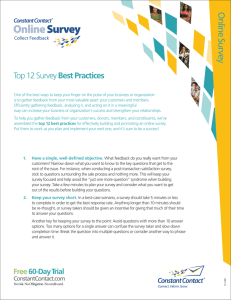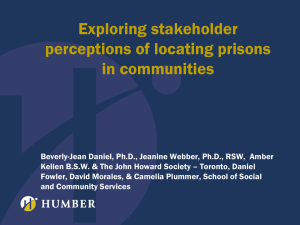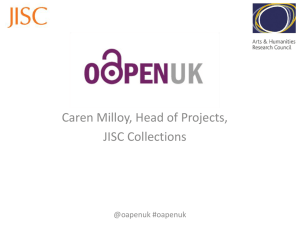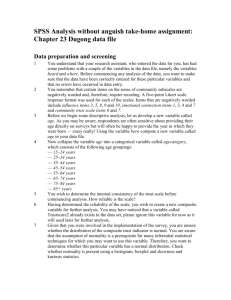Ethical Dilemmas
advertisement
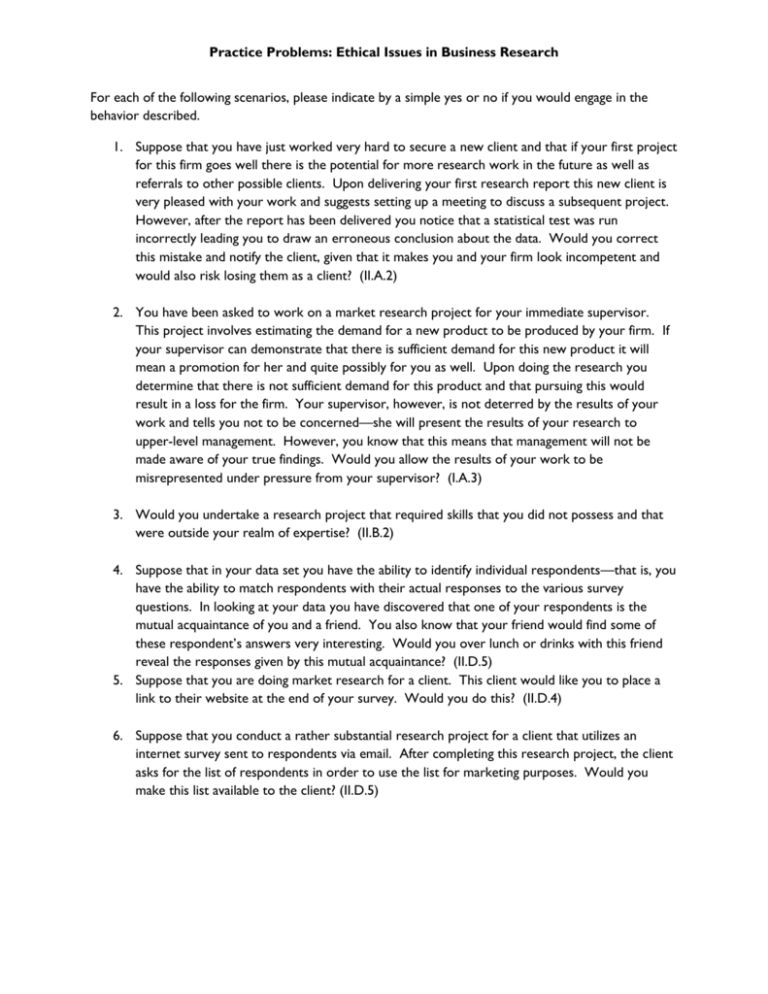
Practice Problems: Ethical Issues in Business Research For each of the following scenarios, please indicate by a simple yes or no if you would engage in the behavior described. 1. Suppose that you have just worked very hard to secure a new client and that if your first project for this firm goes well there is the potential for more research work in the future as well as referrals to other possible clients. Upon delivering your first research report this new client is very pleased with your work and suggests setting up a meeting to discuss a subsequent project. However, after the report has been delivered you notice that a statistical test was run incorrectly leading you to draw an erroneous conclusion about the data. Would you correct this mistake and notify the client, given that it makes you and your firm look incompetent and would also risk losing them as a client? (II.A.2) 2. You have been asked to work on a market research project for your immediate supervisor. This project involves estimating the demand for a new product to be produced by your firm. If your supervisor can demonstrate that there is sufficient demand for this new product it will mean a promotion for her and quite possibly for you as well. Upon doing the research you determine that there is not sufficient demand for this product and that pursuing this would result in a loss for the firm. Your supervisor, however, is not deterred by the results of your work and tells you not to be concerned—she will present the results of your research to upper-level management. However, you know that this means that management will not be made aware of your true findings. Would you allow the results of your work to be misrepresented under pressure from your supervisor? (I.A.3) 3. Would you undertake a research project that required skills that you did not possess and that were outside your realm of expertise? (II.B.2) 4. Suppose that in your data set you have the ability to identify individual respondents—that is, you have the ability to match respondents with their actual responses to the various survey questions. In looking at your data you have discovered that one of your respondents is the mutual acquaintance of you and a friend. You also know that your friend would find some of these respondent’s answers very interesting. Would you over lunch or drinks with this friend reveal the responses given by this mutual acquaintance? (II.D.5) 5. Suppose that you are doing market research for a client. This client would like you to place a link to their website at the end of your survey. Would you do this? (II.D.4) 6. Suppose that you conduct a rather substantial research project for a client that utilizes an internet survey sent to respondents via email. After completing this research project, the client asks for the list of respondents in order to use the list for marketing purposes. Would you make this list available to the client? (II.D.5) Practice Problems: Ethical Issues in Business Research 7. Suppose that you are conducting a survey on illegal behavior. You know the response rate has the potential to be low and even those individuals who chose to participate will more than likely not answer all questions. You are also concerned that given the topic of the survey respondents will not be truthful in their responses. In order to reduce bias and increase your response rate would you promise complete anonymity when you know that the internet survey software captures an I.P. address, such that the responses are merely confidential rather than anonymous? (II.D.1) 8. Would you lie to a respondent about the true purpose of a survey? (II.D.1) 9. You have just been hired by the U.S. Census Bureau to conduct face-to-face interviews in order to gather some in-depth information on certain portions of the U.S. population. To encourage persistence among interviewers the Census Bureau is paying you by the completed questionnaire rather than by the hour. What you find, however, is that it is hard to get individuals to cooperate; they are suspicious of you and the government and do not want to provide any personal information. You do notice, however, that many of the respondents appear to have relatively low levels of education and seem to be clustered in low income neighborhoods. Given this, would you imply--but not directly state-- to potential respondents that their taxes might increase if they choose not to participate, knowing full well that this is not true but might possibly increase the response rate? (II.D.3) 10. You have just received in your inbox a survey on underage drinking. The purpose of this survey is to better understand underage drinking behavior among students. One section of the survey, in particular, asks questions concerning the use of fake I.D.s, such as “Do you have a fake ID?”, “How often do you use your fake ID?” and “How did you get your fake ID?” The researcher has promised that the responses are confidential and that individual responses will not be matched to the people that gave them. Results will only be presented in the aggregate. You have a fake ID and use it regularly. Do you answer the questions honestly or do you hide some or all of your illegal behavior?

